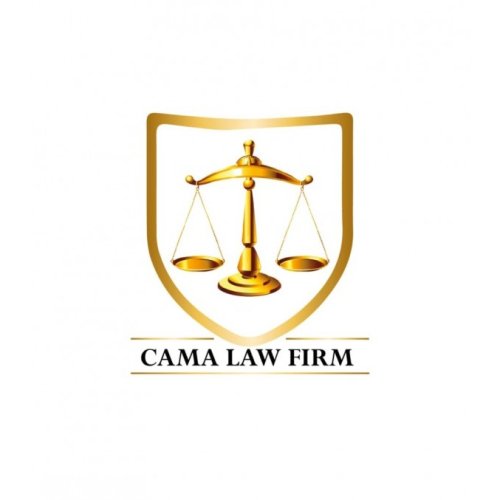Best Native People Lawyers in Cameroon
Share your needs with us, get contacted by law firms.
Free. Takes 2 min.
Or refine your search by selecting a city:
List of the best lawyers in Cameroon
About Native People Law in Cameroon
The Native People in Cameroon are predominantly composed of over 250 ethnic groups, each with distinctive cultural, linguistic, and historical backgrounds. The most widely recognized groups include the Bantu, Semi-Bantu, and the culturally diverse Grassfields people, among others. The legal landscape concerning Native People is shaped by the need to respect and protect the cultural heritage, land rights, and traditional governance systems of these communities. Given the nation's colonial history and the dual legal structure combining customary and statutory systems, Native People’s rights can often be complex and nuanced, integrating both indigenous practices and national legal frameworks.
Why You May Need a Lawyer
There are several situations in which Native People in Cameroon might seek legal advice or representation:
- Land Disputes: Issues related to land ownership, customary land rights, or concessions can arise between communities or with external parties.
- Traditional Governance: Navigating the legal recognition of traditional authorities and their respective roles within the state framework.
- Cultural Heritage Protection: Ensuring the preservation of cultural sites and addressing grievances regarding exploitations or disrespect.
- Resource Management: Addressing challenges related to resource extraction activities on indigenous lands that may infringe on their rights or cause environmental harm.
- Human Rights Issues: Seeking redress for discrimination or violations of civil rights particular to indigenous communities.
Local Laws Overview
Cameroon acknowledges both statutory and customary laws. The government recognizes the role of traditional leaders and customary courts in governing certain aspects of community life. Key aspects of local laws significant to Native People include:
- Customary Law: Governs aspects such as marriage, succession, and land tenure within local communities.
- Land Rights: The 1974 Land Tenure Ordinance is central, which allows for communal and individual ownership under specific conditions.
- Decentralization Laws: Aim to empower local governments and traditional authorities, yet their implementation may vary considerably.
- Indigenous Rights: Various international conventions like the United Nations Declaration on the Rights of Indigenous Peoples (UNDRIP) influence domestic legal standards, even if indirectly.
Frequently Asked Questions
What are customary laws, and how do they affect Native People?
Customary laws are unwritten local traditions that govern personal and communal conduct, including family life, land rights, and dispute resolution, recognized within Cameroon's dual legal system.
How do land rights work for Native People in Cameroon?
Land rights for Native People are complex, often involving customary ownership that may not be formally registered but still holds significant local value and is recognized under customary law.
How are disputes typically resolved within Native communities?
Disputes are often resolved through traditional councils or community meetings, where customary law is applied with the aim of reaching consensual outcomes rather than adversarial positions.
What role do traditional authorities play in the legal system?
Traditional authorities act as leaders within their communities, overseeing social and cultural matters and often serving as intermediaries between the state legal system and customary practices.
Can Native People claim compensation for land use or environmental harm?
Yes, they can claim compensation, although the process can be complicated by differing interpretations of land rights and challenges in proving customary ownership.
How does the Cameroonian government support indigenous rights?
Policies exist on paper to protect indigenous rights, though their enforcement is often inconsistent, leading to advocacy being a crucial aspect of indigenous rights protection.
What can be done about discrimination against Native People?
Legal recourse is available through national human rights institutions, and advocacy groups can provide support for addressing discriminatory practices.
How are cultural sites protected under Cameroonian law?
Cultural sites can be protected through both national heritage laws and community advocacy, although enforcement of these protections can be inconsistent.
Are there international bodies that support the rights of Native People in Cameroon?
Yes, organizations like the United Nations and international NGOs often work to promote and protect indigenous rights and can be powerful allies in legal matters.
What is the significance of international conventions like UNDRIP for Native People in Cameroon?
While UNDRIP is non-binding, it sets important standards for treatment of indigenous peoples that can influence domestic laws and policies in respecting indigenous rights.
Additional Resources
Several resources can offer additional help for Native People seeking legal advice in Cameroon:
- Ministry of Territorial Administration: Handles traditional authority and local governance issues.
- Cameroon National Commission on Human Rights and Freedoms: Provides a platform for addressing rights issues.
- Indigenous Rights NGOs: Organizations like Global Rights and local groups provide focused advocacy and support.
- Local Bar Associations: Offer access to legal professionals knowledgeable in both statutory and customary law.
Next Steps
If you require legal assistance regarding Native People’s issues in Cameroon, consider undertaking the following steps:
- Research: Gather detailed information about your specific issue, including relevant local customs and statutory laws.
- Consultation: Seek advice from an attorney experienced in Native People’s law or a legal advisor at an NGO.
- Documentation: Ensure all pertinent documents and evidence are organized and available for review.
- Engagement with Authorities: Engage with competent local authorities who may provide mediation or administrative support.
- Network: Connect with community leaders or traditional authorities who might assist with navigating local customs.
- Advocacy Groups: Reach out to national or international advocacy groups for support and strategic guidance.
Lawzana helps you find the best lawyers and law firms in Cameroon through a curated and pre-screened list of qualified legal professionals. Our platform offers rankings and detailed profiles of attorneys and law firms, allowing you to compare based on practice areas, including Native People, experience, and client feedback.
Each profile includes a description of the firm's areas of practice, client reviews, team members and partners, year of establishment, spoken languages, office locations, contact information, social media presence, and any published articles or resources. Most firms on our platform speak English and are experienced in both local and international legal matters.
Get a quote from top-rated law firms in Cameroon — quickly, securely, and without unnecessary hassle.
Disclaimer:
The information provided on this page is for general informational purposes only and does not constitute legal advice. While we strive to ensure the accuracy and relevance of the content, legal information may change over time, and interpretations of the law can vary. You should always consult with a qualified legal professional for advice specific to your situation.
We disclaim all liability for actions taken or not taken based on the content of this page. If you believe any information is incorrect or outdated, please contact us, and we will review and update it where appropriate.
Browse native people law firms by city in Cameroon
Refine your search by selecting a city.










